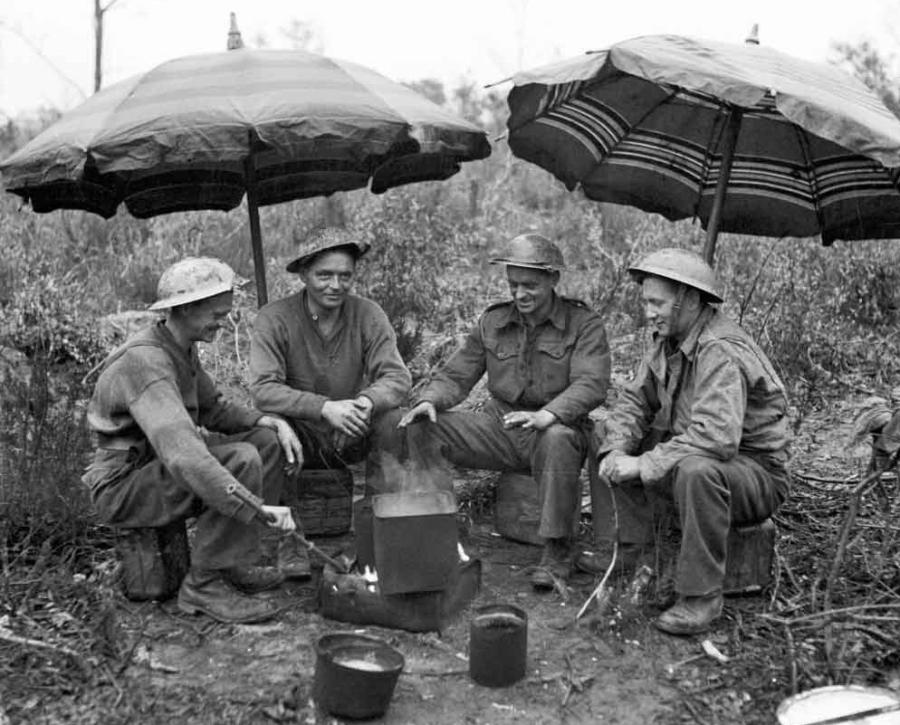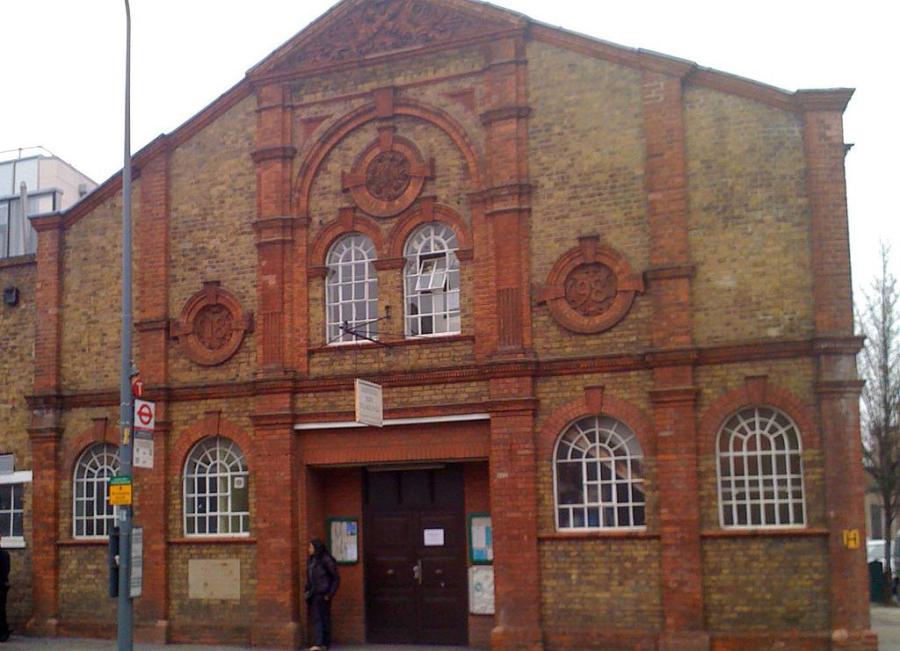
He described himself as a "humble gunner", but Band Sergeant Major VC Fairfield, who signed up and trained with the Territorials at the Shepherds Bush drill hall as the Second World War loomed, was being modest.
He went on to see action in Italy as he helped liberate Europe with the 6th Field Regiment, Royal Artillery (a unit which had already taken part in many First World War battles, including Vimy Ridge, Ypres, Passchendale and Cambrai).
Warrant Officer Fairfield's early days give an intriguing insight into the life of a young volunteer.
Watching over Shepherds Bush
Recruiting in Shepherds Bush, Putney and Paddington, the 64th (7th London) Field Regiment, Royal Artillery, persuaded VC Fairfield to 'take the King's shilling' as a Territorial in 1937, when he was 19.
By the time the Second World War ended, 84 of those young volunteers had been killed, with 160 wounded.
"In 1937 it was only 19 years since we had defeated Imperial Germany, but we had no idea that the army had not advanced very far since 1918 in some areas of military strategy," he later wrote.
"I looked round for a branch of the forces that was local to where I lived, and decided to join an artillery battery at Shepherds Bush. In February 1937 I was sworn in with my friend Ernie.
"Even though a humble gunner, the equivalent of a private in the infantry, I had to learn all about the theory of gunnery. However, after a year or so, I found that many of those who were marked out for promotion were not necessarily the best choices. There was a tendency to select tall or well-built men, but courage and leadership find strange homes and sometimes it was a quiet or an inoffensive man who turned out to be the hero.
"I was called up along with about half a dozen others, and told to report to the Drill Hall at Shepherds Bush at once. So I went home, changed into uniform, picked up my kitbag and caught the bus.
"At this time our regiment was armed with elderly 18 pounders and even older (1916 I believe) 4.5 howitzers. They were quite serviceable but totally out of date particularly when compared with the latest German guns.
"Each day we mounted a guard on the empty building we occupied, and each day a small squad marched round the back streets of Shepherds Bush, which I am certain did nothing to raise the morale of the civilian population!"
WO Fairfield was one of the key staff on the reception tables at the drill hall.
"I had to fill in the necessary documents for each individual soldier and be the general clerical dogsbody," he recalled, adding that the role brought him "no thanks whatsoever"!
"The remainder of the battery personnel trickled in during the following seven days up to 2 September and, after being vetted, they were sent on to billets at Hampstead while we remained at the 'Bush'.
"There were false air raid alarms, and we spent quite a lot of time filling sandbags which were stacked up outside all the windows and doors to provide protection. Sometimes I felt more like a member of a senior boy scout troop than a soldier in the British Army!"

Joining the fight
Eventually Warrant Officer Fairfield did see action, however, and played his part in helping to recapture Italy.
The war also involved a lot of waiting around, and being shipped to far-off places including South Africa, Egypt and India.
Years after his death, contributing to a BBC project on the Second World War, his daughter Patricia admitted: "It's a constant source of regret that I didn't pay more attention to my father's war stories.
"It's not that they weren't interesting, it's just that Dad had a tendency to reminisce whenever there was a war film or documentary on… and he would interrupt by angrily disputing what was not correct on the programme!"